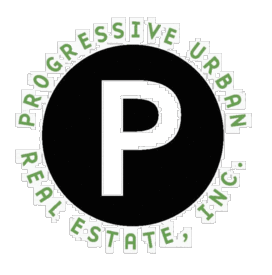In Praise of Shopkeepers
It Takes Courage These Days to Start a Useful Business
By JOSEPH EPSTEIN
Published in the Wall Street Journal, July 17th, 2009
Within three blocks of my apartment in Evanston, Ill., are 21 restaurants, six coffee shops, five manicurist-pedicurists, four cellphone purveyors, three dry cleaners, two quite good libraries, one multiplex theater, and (not a partridge in a pear tree) a paucity of interesting and useful shops. Shops we do have, but they are preponderantly corporate-owned: Design Within Reach, Joseph A. Bank, North Face, Athletica, LA Fitness. Lacking are the odd shops, the curiosity shops (to use the Charles Dickens' title), whose character and contents might pleasantly surprise a passing pedestrian.
My friend Edward Shils, the Cambridge and University of Chicago sociologist, used to say that he judged a city by the number of blocks of interesting shops it contained. By this measure, he felt, London and New York surpassed all others. By the same measure some cities scarcely qualify as cities at all: Los Angeles, for example, and possibly San Francisco. I do not count as interesting those shops in parts of cities that I think of as Poloville, after the logo of Ralph Lauren. Ah, those gentle strolls through Poloville, its shops filled with goods only a person who no longer cares about money would buy: Prada, Dunhill, Chanel, Barney's, Gucci, Emilio Meshuganah, and the rest.
Evanston used to be teeming with shops, or so I remember from my boyhood. In those days, it was the retailing mecca of Chicago's North Shore suburbs. People drove in from as far away as Lake Forest (home, you will recall, of F. Scott Fitzgerald's Daisy and Tom Buchanan) to shop in Evanston. Women's and men's clothing stores, elegant ceramics shops, and serious jewelers were then in business. But the advent of shopping malls, especially one in nearby Skokie called Old Orchard, put paid to Evanston's retail glory days.
Slowly the good, useful shops began to fall away. These were replaced by shops catering to students, that transient class, at Northwestern University, located on the northeast end of Evanston. Downtown Evanston is Taco Bell country now, land of Starbucks and Burger King and The Gap, though it is good to report that a landscape disfiguring McDonald's not long ago went belly up at a major intersection. Did things, I sometimes wonder, have to turn out this way?
Three or so miles south of Evanston is a revived Chicago neighborhood, once chiefly Swedish working class, called Andersonville, on whose main thoroughfare, Clark Street, reside a charming gallimaufry of odd shops and non-franchise restaurants. Andersonville has been gentrified, or, more precisely, gayified, for many gay and lesbian couples now inhabit its older homes and apartment buildings. Upon the advent of gays and lesbians, a rich array of shops almost invariably follow.
Walking along Clark Street in Andersonville one never knows upon what one's eye will alight. Here is an excellent independent bookstore, specializing in women's and children's books; here is an unpretentious and excellent shoe store with good prices; here is an elegant pastry shop, run by a handsome young Italian couple. There, tucked into a small space off Clark Street is a hot dog joint, which gets the Chicago hot dog just right, with properly steamed bun and appropriately greasy French fries; and there is a thrift store, loaded with surprising items. The element of unpredictability, of delightful surprise, should be part of the adventure of shopping -- an element precluded by the standard stores never owned by anyone on the premises but, as far as one knows, two Saudis in Houston.
"England is a nation of shopkeepers," remarked Napoleon, unconsciously quoting Adam Smith and suggesting that they, the English, as mere shopkeepers, were unfit to fight the French. Well, we know how the shopkeepers fared at a place called Waterloo. No great surprise, really. Considerable courage and perseverance are required to start and keep a good shop running. Especially is this so today, when real estate rental is expensive, taxes on profits high, and the prospect of being clobbered by a national chain store moving in discourage the initiative needed to open a useful shop.
Running a good shop is a service to one's community, of much greater value, in my view, than the work of two hundred social workers, five hundred psychotherapists, and a thousand second-rate poets -- and more honorable than the efforts of the vast majority of the members of Congress. A nation of shopkeepers, far from being the put-down Napoleon thought, sounds more and more like an ideal to which a healthy country ought to aspire.
Friday, July 17, 2009
Subscribe to:
Post Comments (Atom)

No comments:
Post a Comment